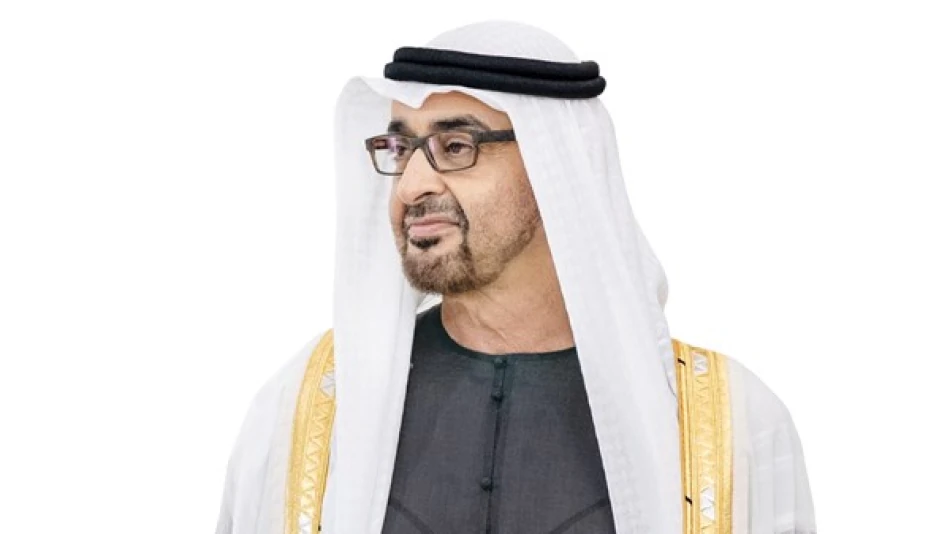
UAE President Embarks on Historic State Visit to Strengthen Ties with Russia
UAE President's Moscow Visit Signals Deepening Economic Ties Despite Western Sanctions
UAE President Sheikh Mohammed bin Zayed Al Nahyan's official visit to Russia beginning Thursday, August 7, underscores the Emirates' commitment to maintaining strategic partnerships regardless of geopolitical pressures. The high-level diplomatic engagement with President Vladimir Putin focuses on expanding economic cooperation across energy, trade, and investment sectors while addressing shared regional concerns.
Strategic Partnership Beyond Politics
The timing of this visit reflects the UAE's pragmatic foreign policy approach, which prioritizes economic interests and regional stability over alignment with Western sanctions regimes. While many European nations have scaled back diplomatic engagement with Moscow, the Emirates continues to view Russia as a crucial partner in multiple sectors.
During the meetings, both leaders will explore enhanced collaboration in energy cooperation, bilateral trade expansion, and joint investment opportunities. These discussions come as both nations seek to diversify their economic partnerships amid shifting global alliances.
Energy Sector Implications
The energy dimension of this partnership carries particular significance. Russia remains a major oil and gas producer, while the UAE serves as a key energy hub and increasingly important player in renewable energy transitions. Their cooperation could influence global energy markets and pricing mechanisms.
For investors, this relationship signals potential opportunities in energy infrastructure projects, petrochemical ventures, and renewable energy initiatives that could emerge from enhanced bilateral cooperation.
Regional Dynamics and Shared Interests
Beyond economic matters, the leaders will address regional and international issues of mutual concern. The UAE's position as a regional mediator, combined with Russia's influence in various conflict zones, creates opportunities for diplomatic coordination on Middle Eastern affairs.
Comparison with Global Trends
This engagement contrasts sharply with approaches taken by traditional Western allies. While the US and EU maintain strict sanctions regimes, countries like the UAE, India, and China continue expanding economic ties with Russia, creating a bifurcated global economy where different blocs operate under distinct rules.
Market and Investment Outlook
The strengthened UAE-Russia partnership could create new investment corridors, particularly in sectors less affected by international sanctions. Technology transfer, agricultural cooperation, and tourism development represent areas where both nations could benefit significantly.
For global markets, this relationship demonstrates how middle powers are reshaping international economic architecture by maintaining multiple partnerships regardless of broader geopolitical tensions. This pragmatic approach may become the template for other nations seeking to balance competing international pressures while advancing their economic interests.
Most Viewed News

 Layla Al Mansoori
Layla Al Mansoori






